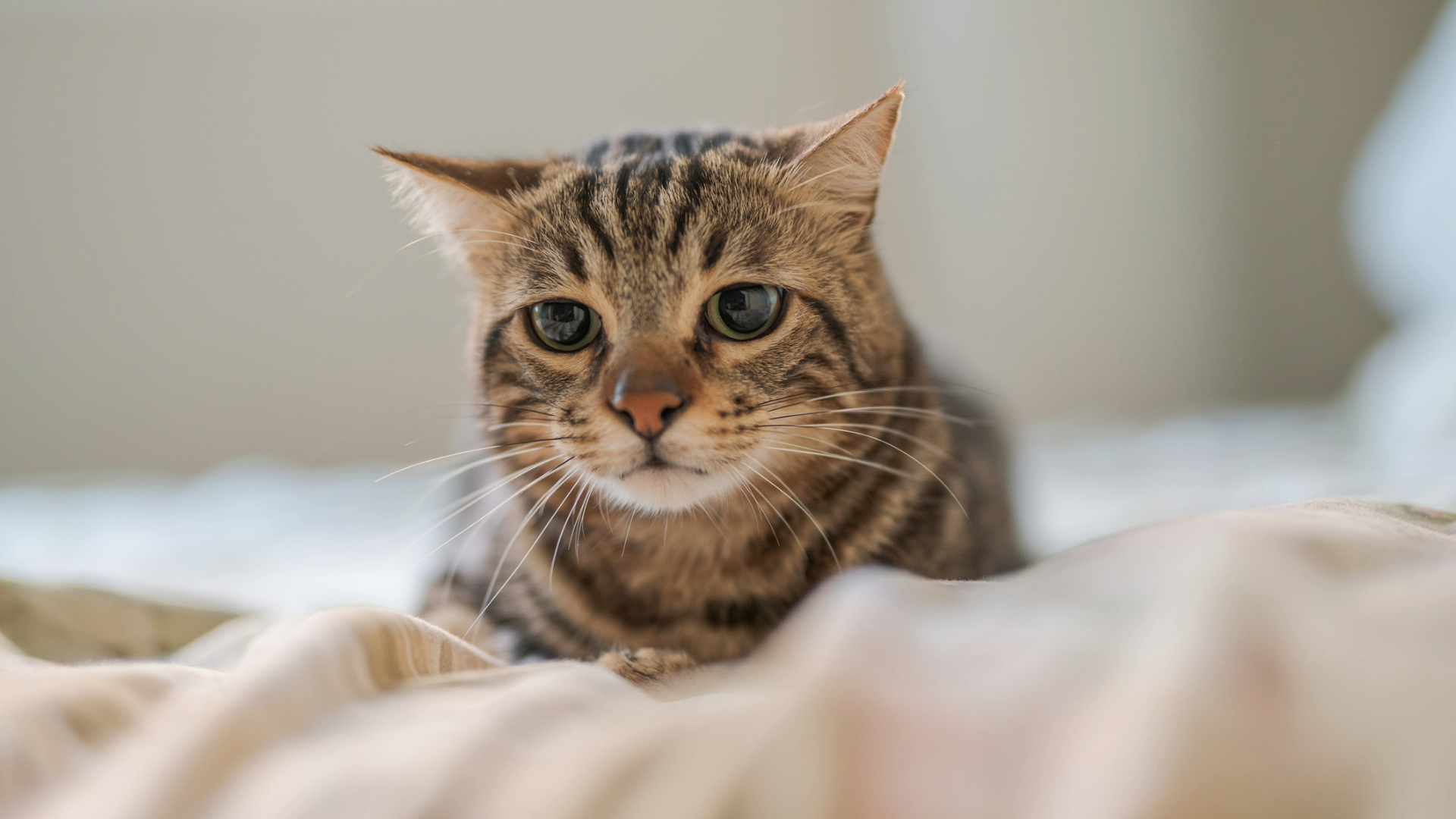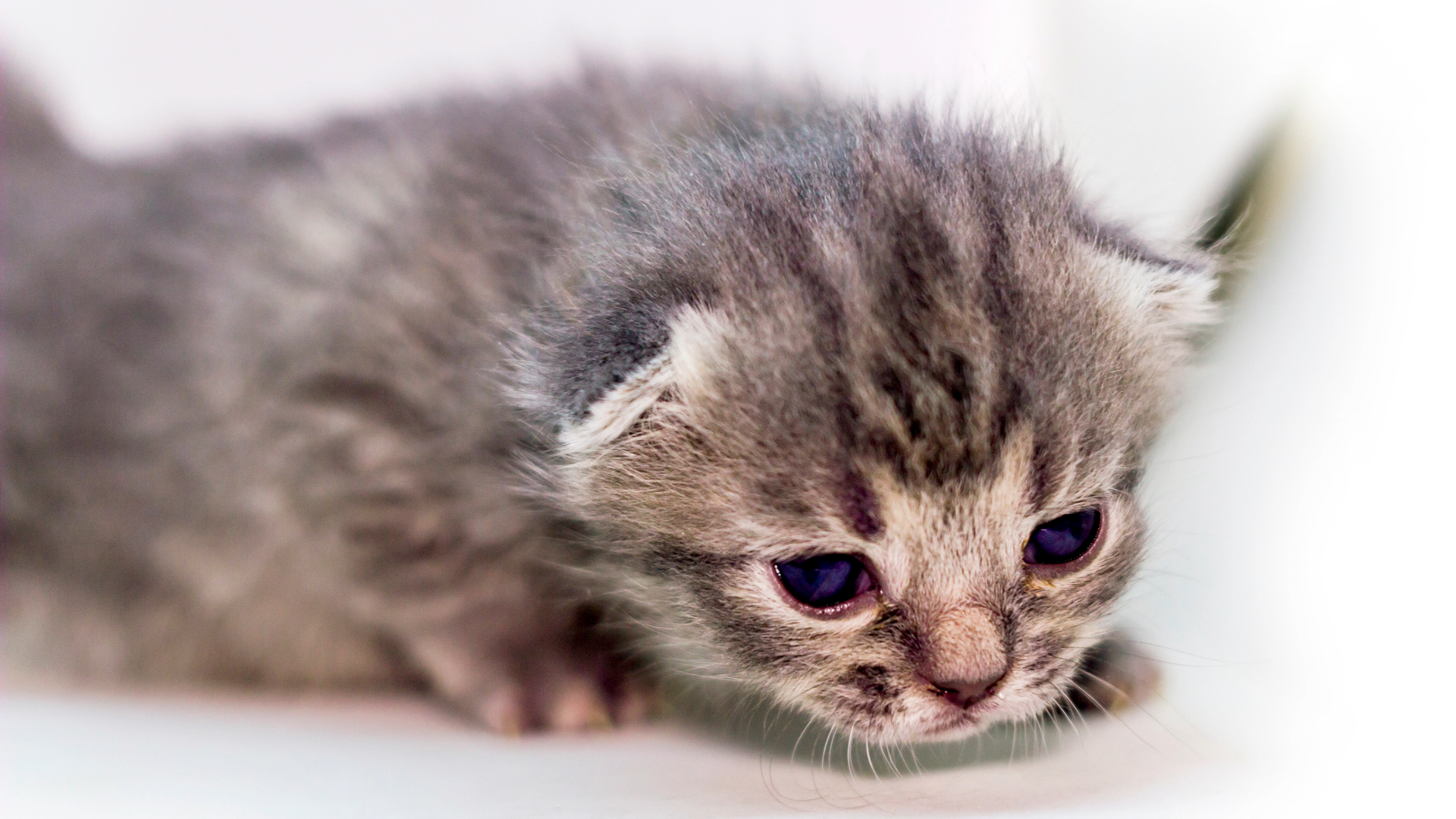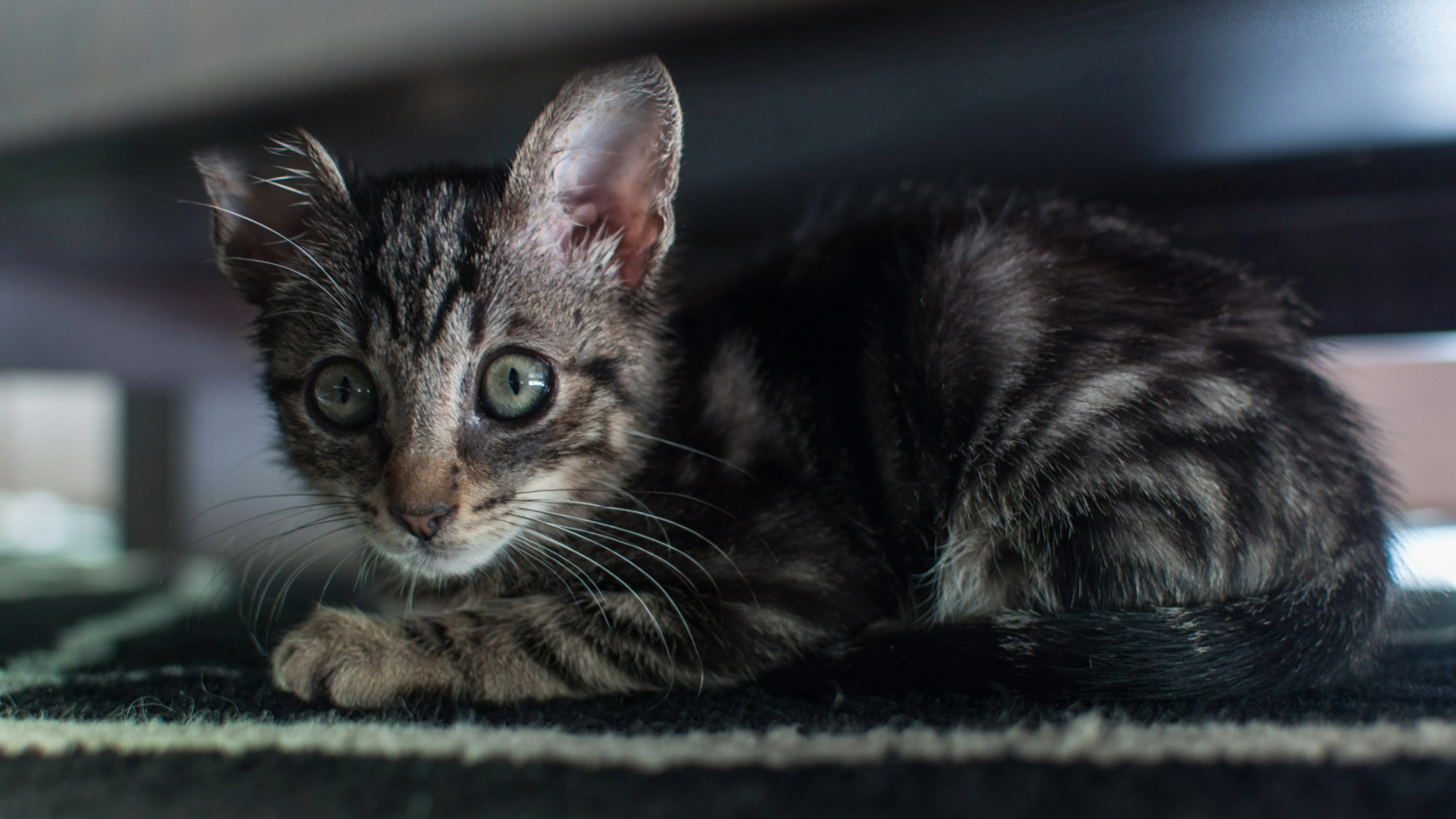
Get the best advice, tips and top tech for your beloved Pets
You are now subscribed
Your newsletter sign-up was successful
If you’re wondering, ‘Why is my cat shaking?’, then you might be feeling a little worried. Just like in humans, unexplained shaking in our pets can be a cause for concern. There are several reasons why your cat might be shaking, from physical problems to something they are struggling with emotionally.
This behavior might be confusing when you give them the best kitten food or the best cat food, a warm bed, and everything else they could need, but there are actually six common causes of shaking that you may want to investigate.
If you’re not sure whether your cat’s shaking is problematic or not, it’s always best to be on the side of caution and take them for a check up at the vet.
We spoke to vets Dr Catherine Burke and Dr Corinne Wigfall who explained the reasons why your cat might be shaking - some of them indicative of a serious medical issue.

Dr Catherine Burke qualified as a vet from the University of Liverpool in 2018. She is passionate about all forms of animal welfare and has over five years of experience in both private and charity practices. Keen to share her knowledge and improve the lives of pets, Catherine is also an experienced writer and regularly writes for the Pet Health Hub at PDSA, sharing her best advice to new and experienced pet owners. Catherine is also a spokesperson for PDSA, and regularly does media interviews on a variety of pet health topics. Catherine lives in Derbyshire with her husband and her black Labrador, Murphy.

Corrine is a registered vet providing advice to her clients about flea and worm products, parasite control and prevention, and possible adverse treatment reactions. Corrine is a representative for ManyPets.
Causes for shaking
“There are many different physical and emotional reasons a cat might shake or tremor,” Dr Burke says. “It is important to be aware that it can sometimes be an early symptom of a more serious underlying condition. If your cat starts to shake uncontrollably, always contact your vet for advice.”
Here are some reasons your cat might be shaking:
1. Toxins or poisoning
Get the best advice, tips and top tech for your beloved Pets
“If a cat comes into contact with a poison or toxin, one of the first signs you might see is shaking,” says Dr Burke. “Shaking will often develop into a more obvious tremor or seizure and can be fatal. Other signs of poisoning can include drooling, vomiting and losing balance or falling over.”
2. Neurological disease
Dr Burke says: “Shaking or tremoring can mean something is wrong with your cat’s nervous system (their brain and spinal cord). Kittens born with a condition called ‘feline cerebellar hypoplasia’, often referred to as ‘wobbly kitten’ syndrome, have been exposed to a virus in the womb..
“These kittens may have head shaking or tremors, alongside losing their balance and lifting their legs high when they are walking. If you notice any unusual signs with your kitten, contact your vet straight away for advice.”

3. Temperature
“Just like us humans, a cat shaking may be a sign that they are uncomfortable with the temperature. This is important to look out for in young kittens as adult cats are usually very good at keeping themselves at the right temperature,” says Dr Burke. “A young kitten that has been out in the cold or in a drafty spot in your house may shiver to keep warm, as might older cats who have been stuck outside in very cold weather. A normal body temperature for a cat ranges between [100.4°F-102.2°F], so any decrease below this is likely to lead to your cat feeling cold.”
K&H Pet Products Thermo-Kitty Bed Indoor Heated Cat Bed
If cold temperatures are causing your cat to shake, then it might be worth investing in this heated bed. Not only does it have a thick foam base, but it also warms up 10 to 15 degrees above room temperature to keep your kitten toasty.
4. Fear or anxiety
Dr Burke explains: “Just as shaking can be a symptom of a physical illness, it can also be a symptom of an emotional response such as intense fear or anxiety in a cat. Cats will often hide obvious signs of fear and anxiety and usually freeze rather than displaying recognizable emotions. However, in some situations, you may notice your cat shaking.
“It's always best to respect your cat's choice and don't force them to come to you if they're scared. Instead, create a calm atmosphere by drawing the curtains and minimizing loud noises, while you identify what may be causing the problem.”
Dr Corinne Wigfall adds: “It’s not uncommon for cats to feel anxious or stressed, for example when traveling to the vet, or on bonfire night when fireworks are going off all night. It’s a way your cat can tell you that they need your support and comfort so a gentle pat and a comforting word go a long way when your cat is shaking from stress.”
If you’re looking for more advice on how to calm a cat, this feature has some excellent advice.
Feliway Classic Calming Spray for Cats
If you’re worried that your cat is shaking due to stress or anxiety, then you might want to give this calming spray a go. Since it imitates the pheromones that a mother cat releases, it claims to "promote a natural sense of calmness".
5. Itching
“You might notice your cat shaking or twitching if they are feeling itchy. This could be due to parasites, like fleas or underlying allergies. If their ears in particular are itchy, you will often see them shaking their head – itchy ears can be caused by infections, parasites, or growths in the ear canal,” says Dr Burke.
If your cat is experiencing itchy ears, then our feature on ear infections in cats can help.
Dr Wigfall adds: “Skin disease can have lots of different causes such as fleas, contact reactions, or allergens such as food or grasses. Sometimes itchy skin can become so uncomfortable your cat may start to twitch or shake to cope with the itching sensation.”
6. Pain
Dr Burke says: “Like many animals, cats are masters at hiding their pain, but shaking can be one of the visible signs that they’re experiencing physical discomfort. To identify the cause of the problem, always book an appointment with a vet, who will determine if there are any underlying issues behind the shaking.”
Dr Wigfall adds: “Cats are generally tough in nature, and can often hide pain for a long time without us knowing they are uncomfortable. There are many causes of pain, so taking your cat to their vet for a full health check-up can help find the source.”
To understand the signs of pain in cats better, this feature will help you work them out.

Should I take my cat to the vet?
If your cat is shaking, then you’re probably wondering whether you need to take them to the vet or not. Here are some signs that shaking might be something serious, according to Dr Wigfall:
- Any signs of collapse
- Open mouth breathing
- Vomiting
- Severe diarrhoea
- Any open wounds or active bleeding
- Shaking that does not resolve after two hours without an obvious cause (e.g. thunderstorm)
- Becoming wobbly or unbalanced
Enjoyed this? You might also like these features: 32 weird cat behaviors that you’re worried about and 7 common cat behavior problems solved. Or, we've revealed the reason why your cat is walking in circles.
Lou is an experienced writer and keen dog lover who works at PetRadar's sister site, LiveScience. When Lou isn't covering health and fitness, she's busy spending time with her family dogs or growing all kinds of veggies and flowers on her allotment.


